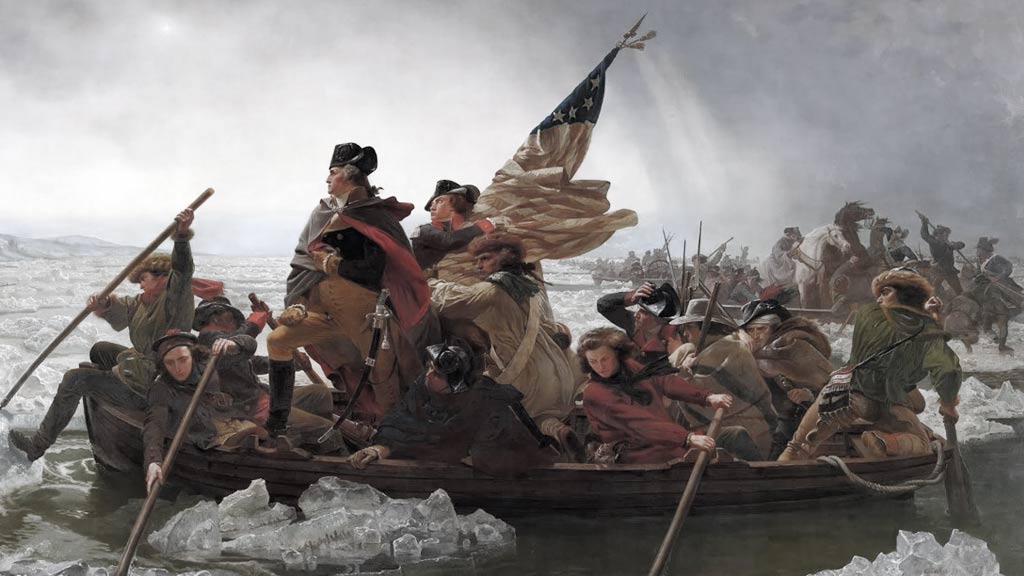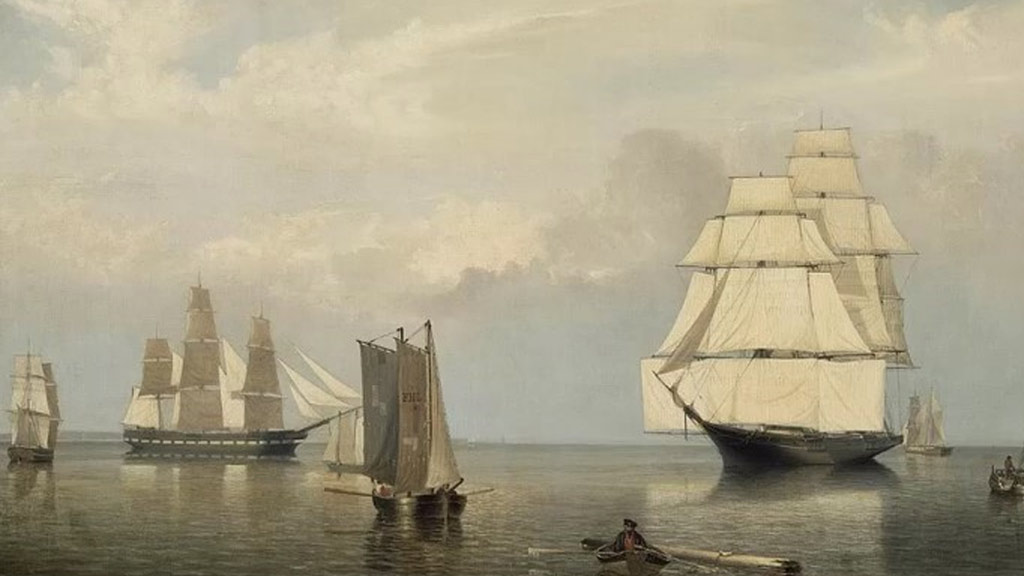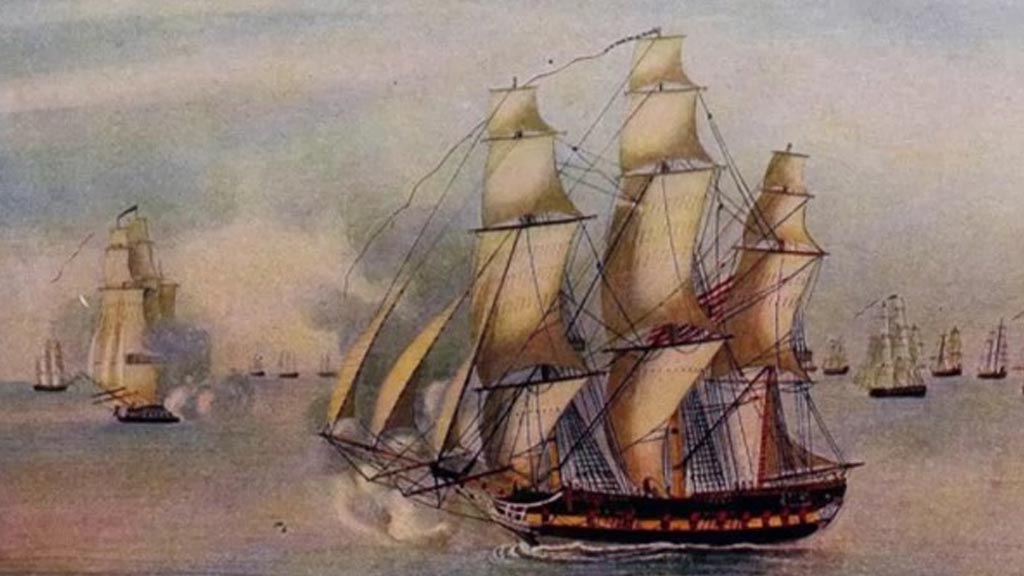In the heart of Salem’s maritime history lies a captivating tale of privateers who played a pivotal role during the Revolutionary War.
Led by individuals like Elias Hasket Derby, these privateer vessels not only supported the Revolution but also proved to be incredibly profitable ventures.
Derby, a skilled businessman and bookkeeper, orchestrated the success of Salems largest privateering vessel, the Grand Turk, which captured an impressive seventeen enemy ships between 1781 and 1782.
As the privateering business flourished, Salem became a hub of maritime activity, with various vessels commissioned to sail as far as South America and the Irish Sea.
The legacy of Salem’s privateers, including the meticulous operations and finances analyzed by historians like Jerome R. Garitee, continues to intrigue scholars and enthusiasts alike.
Through the lens of history, the daring exploits and financial intricacies of Salem’s privateers offer a fascinating glimpse into America’s maritime past.
The Role of Salem in American Privateering
Salem played a vital role in American privateering, significantly contributing to the country’s maritime history. Privateer vessels, like the Grand Turk, were pivotal during the Revolutionary War, supporting the Revolution and capturing enemy ships for profit.
Early Beginnings: Salem’s Maritime History
Salem’s privateering roots date back to the Revolutionary War, where individuals like Elias Hasket Derby emerged as key figures.
The Grand Turk, a renowned privateer vessel, symbolized Salem’s maritime prowess, aiding in the fight for American independence.
This era marked the city’s rise as a prominent maritime hub, engaging in lucrative privateering ventures that shaped its maritime identity.
Privateering brought wealth to Salem through captured goods, boosting its economy. Privateers played a crucial role in securing American interests at sea during conflicts. These ventures solidified Salem’s position as a maritime power in the early years of the nation.
The Impact of the War of 1812
During the War of 1812, Salem solidified its position in American privateering history. The conflict saw Salem privateers venturing into distant waters, capturing enemy ships and contributing significantly to the war efforts.
Historians such as Jerome R. Garitee have meticulously examined the operations and financial aspects of Salem’s privateers during this period, shedding light on the city’s crucial role in shaping America’s maritime past.
Their detailed research reveals the strategic maneuvers and economic impact of Salem’s privateers, highlighting their vital role in bolstering the country’s naval power during the War of 1812.
Understanding Privateering

Privateering refers to the practice where private individuals or ships are authorized by a government during wartime to attack and capture enemy vessels.
Here are some key aspects to understand about privateering:
Privateering vs. Piracy: Key Differences
Privateering and piracy are often conflated, but there are crucial distinctions between the two.
Privateering was a legally sanctioned form of warfare where privately owned vessels, known as privateers, were authorized by a government to attack and capture enemy ships during wartime.
Privateers operated under a letter of marque, a government license legitimizing their actions and distinguishing them from pirates.
In contrast, piracy involved unauthorized acts of robbery and violence on the high seas outside the bounds of any legal authority.
Privateers were seen as legitimate combatants serving their country’s interests, while pirates were considered criminals operating purely for personal gain.
Legal Frameworks and International Treaties
Privateering operated within the framework of international laws and treaties governing maritime warfare. Nations recognized privateering as a legitimate strategy to weaken enemy forces and disrupt trade routes.
The legality of privateering was often outlined in treaties and agreements between countries, establishing rules of engagement, prisoner treatment, and the division of spoils.
However, the distinction between privateering and piracy was sometimes blurred, leading to diplomatic disputes and accusations of illegitimate conduct.
Despite international efforts to regulate privateering through treaties like the Declaration of Paris in 1856, the practice gradually fell out of favor as nations moved towards abolishing privateering altogether.
Salem’s Famed Privateers

Salem, known for its significant involvement in American privateering during the Revolutionary War and the War of 1812, boasted notable captains leading daring voyages and securing valuable prizes.
Notable Captains and Their Voyages
Salem’s privateers were helmed by captains like Elias Hasket Derby, who established a legacy in maritime trade and privateering.
Derby, a prominent merchant, pioneered New England’s ventures into privateering, amassing a fleet of successful privateer vessels that captured numerous prized possessions during the American Revolution.
His strategic expertise and leadership paved the way for future Salem privateers to embark on profitable voyages along the treacherous waters.
These privateers played a vital role in disrupting British shipping and boosting the colonies’ morale during a crucial time in history.
Their daring exploits and contributions to the war effort solidified Salem’s reputation as a hub for maritime prowess and innovation.
Major Engagements and Prizes Captured
Salem’s privateers engaged in major battles and captured significant prizes during their expeditions. These ventures not only brought wealth and prestige to Salem but also contributed to America’s maritime dominance during the War of 1812.
With skilled crews and well-equipped vessels, Salem’s privateers seized enemy ships and disrupted British maritime trade, inflicting substantial economic damage.
Their exploits and victories at sea solidified Salem’s reputation as a formidable force in privateering history, leaving a lasting impact on the maritime industry.
Legacy of Privateering in Salem

The legacy of privateering in Salem, Massachusetts, holds a significant place in its maritime history.
Here’s an exploration of its impact:
Cultural Impact and Historical Remembrance
Salem’s privateers left a lasting cultural impact, shaping the city’s identity as a maritime powerhouse. Their daring voyages and successful captures during the American Revolution and the War of 1812 have been immortalized in historical accounts and local folklore.
The exploits of captains like Elias Hasket Derby and the vessels they commanded are celebrated as symbols of Salem’s rich maritime history.
The legacy of privateering in Salem continues to be commemorated through various events, books, and museums, keeping alive the memory of these fearless seafarers who played a pivotal role in shaping the nation’s maritime dominance.
Transformations in Maritime Laws
The era of privateering in Salem also witnessed significant transformations in maritime laws and regulations. The legal framework surrounding privateering, including the issuance of letters of marque and the distinction between privateering and piracy, underwent scrutiny and adaptation during this time.
The international treaties governing maritime warfare, such as the Declaration of Paris in 1856, aimed to regulate privateering activities and minimize conflicts at sea.
These changes in maritime laws marked a shift towards the abolition of privateering, reflecting the evolving norms of naval warfare and trade practices on a global scale.
Frequently Asked Questions
What is the significance of Salem in American privateering history?
Salem played a pivotal role in American privateering during the Revolutionary War and the War of 1812. Figures like Elias Hasket Derby and vessels such as the Grand Turk exemplify Salem’s contributions to the war efforts, shaping the city’s maritime identity.
How did historians like Jerome R. Garitee contribute to understanding Salem’s privateering operations?
Historians like Jerome R. Garitee have analyzed the privateers’ operations and finances, providing insights into America’s maritime past and the role of Salem’s privateers in shaping naval warfare norms.
What distinguishes privateering from piracy and how did Salem’s privateers contribute to this distinction?
The article delves into the distinctions between privateering (legalized piracy) and piracy, highlighting how Salem’s privateers operated within legal frameworks to disrupt enemy trade during wars.
How did Salem’s renowned privateers solidify the city’s reputation in privateering history?
Salem’s renowned privateers undertook daring voyages and achieved notable victories, establishing Salem as a prominent hub in privateering history due to their fearless exploits and contributions to naval warfare.
What is the enduring legacy of Salem’s privateers and how is it celebrated today?
The legacy of Salem’s privateers endures through various mediums like events, literature, and museums, honoring their audacity and resilience in shaping America’s maritime narrative and reflecting on their significant contributions to history.
Conclusion
Salem’s rich history of privateering during the Revolutionary War and the War of 1812 showcases the city’s pivotal role in American maritime exploits.
Through the daring voyages led by prominent captains like Elias Hasket Derby and the valor displayed by Salem’s privateers at sea, the city earned a reputation as a maritime powerhouse.
Their efforts not only contributed significantly to the war endeavors but also left a lasting impact on Salem’s identity and legacy.
The distinction between privateering and piracy, along with the legal mechanisms governing privateer activities, sheds light on the intricate maritime landscape of the era.
The issuance of letters of marque and adherence to international treaties shaped the conduct of privateers, highlighting the nuances of lawful privateering operations.
While efforts were made to regulate privateering activities, evolving norms in naval warfare and global trade practices eventually led to its decline.
Jaclyn Lowe